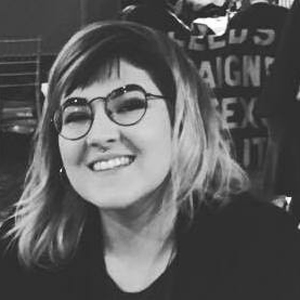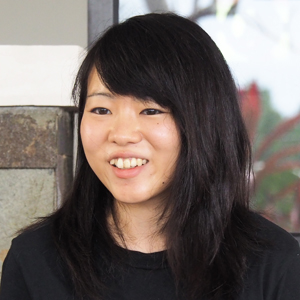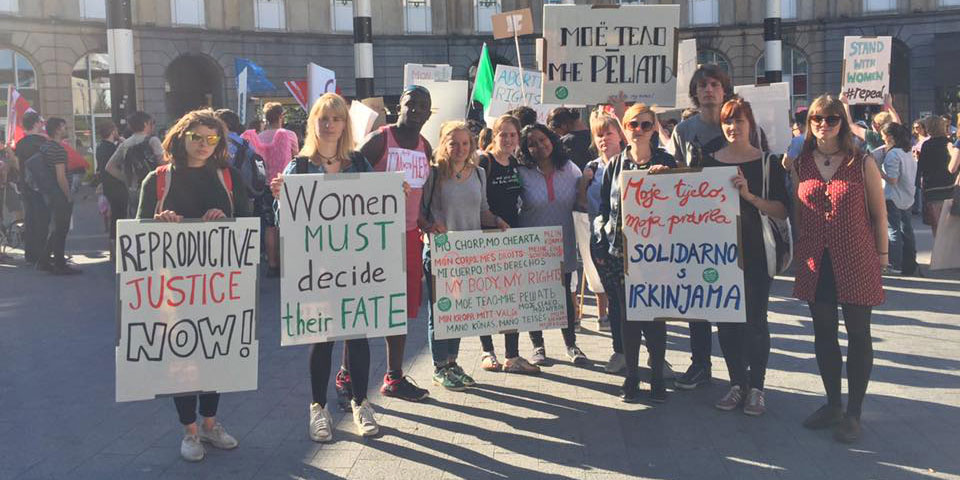Today, on the International Women’s Day of Struggle, Friends of the Earth International is sharing the voices and experiences of Friends of the Earth women and transgender environmental activists. The national and regional contexts described by these activists are diverse. But the challenges they face are a common expression of the linked oppressions based on class, gender, race/ethnicity, sexuality, disability and other power relations.
These voices highlight both the size of the struggle for gender justice and dismantling of patriarchy, and the close connection between this struggle and our fight for environmental justice. At the same time these voices give us hope and a direction for our fight. Read the full article here – below are some perspectives from transgender and women involved in youth activism and the Young FoEE network.
 “One of the biggest challenges is the assumed distance between environmental and gender justice campaigning: the two are so closely intertwined, but aren’t always seen to be. I’ve encountered the idea that the environment is the number one issue, and we can get to issues like trans rights, black lives or disability action once we’ve finished our work on climate change. That doesn’t make any sense. To me, environmental activism is gender and social justice activism.”
“One of the biggest challenges is the assumed distance between environmental and gender justice campaigning: the two are so closely intertwined, but aren’t always seen to be. I’ve encountered the idea that the environment is the number one issue, and we can get to issues like trans rights, black lives or disability action once we’ve finished our work on climate change. That doesn’t make any sense. To me, environmental activism is gender and social justice activism.”
Emma, Young Friends of the Earth Europe equality and interculturalism working group
“Support for women is scarce, especially for mothers, making it difficult for them to return to work. We work with mothers in Fukushima protecting their children and avoiding radiation exposure as best they can. However the patriarchal structure of the family restricts their decisions. This kind of patriarchy is so deeply rooted in our culture, many people regard it as a sacrosanct tradition in Japanese culture.”
Ayumi, Friends of the Earth Japan – participant at Young FoEE summer camp 2016
“I am a UK based campaigner involved in cross-European activism, which often creates the illusion of safety from state violence or the unlikelihood of imprisonment: while the threats aren’t comparable to our friends elsewhere in the world, there are distinct risks to trans people. Trans people, if are arrested, face the risk of being placed in the wrong prison, which might mean a woman being jailed in men’s prison.
Hate crime against trans people on the whole is also rising, which can make accessing public actions and spaces more frightening and more dangerous than for our cis peers. In some parts of the UK, transphobic violence isn’t even considered a hate crime at all, shutting us out from state protections.
We’re here, we’re queer and we’re part of your activism. Don’t assume that transgender people need special motivation to care about the environment. Recognise us, consider the spaces our bodies are safe or unsafe in, and put the time in to educate yourselves.”
Emma, Young Friends of the Earth Europe
“Connecting to the women’s struggle around the world means, for me, challenging our ‘common sense’ – the lack of awareness that rights and opportunities are taken or lost – and helps us realise that there are things that we need and that we deserve.”
Ayumi, Friends of the Earth Japan
Being asked about how I feel connected to women’s struggles around the world is a strange question for me to answer. I can’t separate myself from experiences of femininity, even though I am not female. I was designated female at birth, and struggled through the first 20 years of my life wearing my gender identity like an uncomfortable coat: it pinched in all the wrong places, had sleeves too-short and buttons sewed on backwards. It wasn’t until I was 20 that I learned there were genders outside the binary, and words for how I was feeling.
I shucked off the coat and the gender I had been given. At the same time, I still love some feminine ways of presenting, and am still read as a woman most of the time: I inhabit the political space of being a woman, at least part time. I know what it’s like, and a lot of the violent behaviour that pushed me into activism was strongly gendered: I will always feel closely connected to the struggles of women around me.
Emma, Young Friends of the Earth Europe

